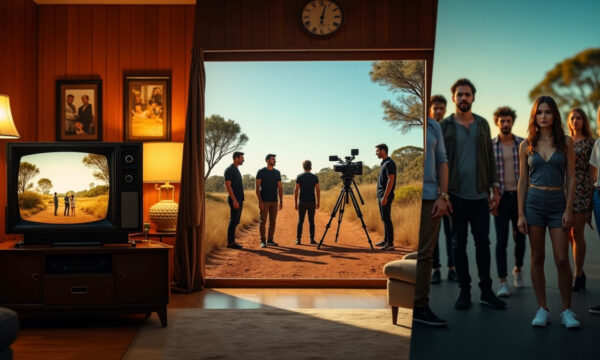Ten EdTech life hacks every student needs to conquer college

EdTech – or educational technology – is already undeniably important. According to research from Harris Interactive and OnlineUniversities.com, 86% of teachers think that it’s essential to use EdTech tools, while 92% would like to use it more than they currently do. This is despite the fact that US teachers are already spending over $3 billion per year on digital learning content and that those electronic resources typically cost 35% less than physical textbooks.
And yet many educators and students alike are still struggling to wrap their heads around new technologies and to understand the potential they have to change the way we learn for the better. Part of the reason for that is that there’s such a proliferation of these technologies that nobody can be reasonably expected to know everything that there is to know about everything.
The good news is that we’ve spent time scouring the web’s top education blogs so that you don’t have to, bringing together the best advice that the web has to offer in this one easy-to-digest blog post. So if you’d like to find out how technology in the classroom can help you to be the best student you can possibly be, read on.
Ten EdTech life hacks
Ask other students/teachers
One of the best ways to get a feel for how technology can help you is to ask other people what they use. If you’re in your first year of studying, try to find some people in their final year or some postgraduate students and ask them what they use now that they wish they’d had access to when they first started.
Think visually
Tools like Canva have changed the way that we approach design, and now anyone can be a graphic designer without any formal training. This means that you can take visual notes, create awe-inspiring presentations and improve planning and brainstorming.
Gamify your learning
How has technology improved education? Well, it’s made it more competitive by introducing gamification, for one thing. Many educational institutions have their own forms of gamification such as quizzes, leaderboards and discussion forums, offering up virtual badges and even real-world discounts in exchange for participation.
Collaborate in real-time
Tools like Dropbox and Google Docs allow you and your classmates to work together on the same documents in real-time, which can be a lifesaver when it’s the night before a big project is due. Google Docs is the gold standard for collaborating within Word documents and Excel spreadsheets, while Dropbox is great for storing and sharing files and for synchronising them across different devices.
Use digital textbooks
Digital textbooks are much cheaper than regular textbooks, and they also take up less space and can be accessed across multiple different devices. Check with your university library, as you may be able to borrow digital textbooks for free, and consider giving audiobooks a try, too. We all learn in different ways, and audio might just be the format for you.
Work on the go
Now that most of us have access to multiple devices, from laptops and desktop computers to smartphones, tablet computers and even smart home hubs like Amazon Echo and Google Home, we’re all used to working on the go. When it comes to the importance of technology in education, much of it comes down to the way it makes our lives more convenient, freeing up more of our attention to focus on our studies.
Don’t be afraid to seek help
If you’re struggling with a specific assignment or if you’re being overwhelmed by too many deadlines, don’t be afraid to buy a paper. Go to essayontime.com.au or some other essay provider and buy yourself a little time. If you’re happy to write but you need a little help with spelling and grammar, you can also hire proofreaders and editors to give you a little boost.
Try online courses
One of the great things about the internet is the proliferation of online courses across a whole range of different subject matters, with many of them available for free. It’s a great way to augment the learning that you’ll already be doing, and it can help you to further specialise in areas that you find interesting.
Hire a tutor
As with online courses, hiring a tutor is another great way to boost your learning with a little off-the-record education. Tutors are particularly useful when you’re stuck on a specific subject, and it’s easy to find them on dedicated tutoring sites, freelancing sites and elsewhere. They’ll typically get in touch via a video call and talk you through the subject while sharing screens.
Use a voice assistant
We touched on this earlier when we mentioned Google Home and Amazon Echo devices. Voice assistants can take notes and reminders for you, and they can also provide information in answer to your searches. They’ll come in super useful when you’re trying to establish a routine, whether you’re working on an essay or whether you’re revising for an exam. And eventually, you’ll wonder how you ever got by without them.
Conclusion
There are no two ways about it: education and technology are a match made in heaven, and the combination of the two is here to stay. It’s believed that the global EdTech industry will be worth $252 billion by 2020, reaching $18 billion in revenues in 2017 alone. That makes it kind of a big deal, and it’s no wonder that more and more startups are choosing to specialise in education technology.
In the meantime, you can make sure that you’re taking advantage of this trend by trying out new EdTech tools as and when you see them and by making technology a default part of the way you educate yourself. You can get started by looking at lists of different tools and applications and seeing which ones sound like they might be of use to you.
Remember that if you’re ever in doubt, you can always check with your teachers to understand what is and what is not acceptable. Respect their boundaries, so if they ask you not to take notes on your tablet during the lesson, keep it turned off and stored safely inside your bag. But as a general rule, most educators will be more than happy for you to use your own tools, as long as they help you to learn. Good luck – and happy learning.
William Stewart
William Stewart started out as a student before becoming a teacher and eventually going self-employed as a full-time freelance writer. He specialises in writing about learning and education and acts as an advisor to undergraduate students at his local university. He lives in the UK with his wife and their daughter.

























Facebook
Twitter
Instagram
YouTube
RSS